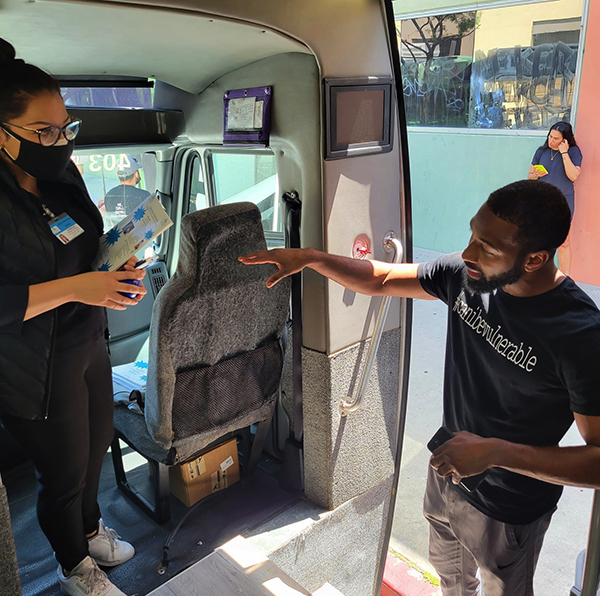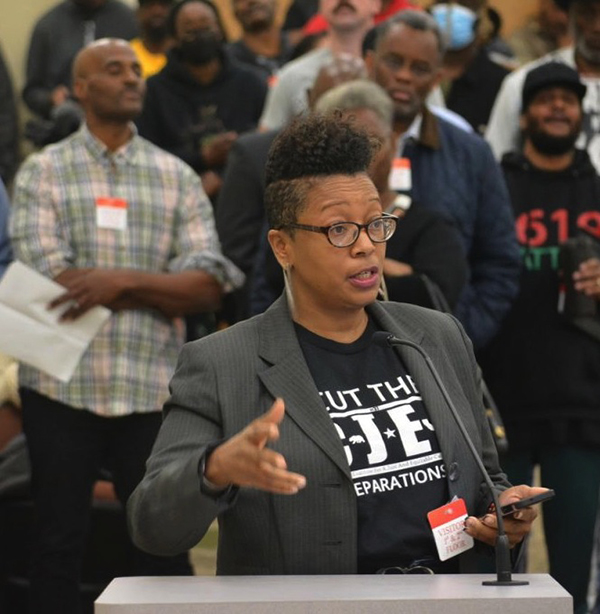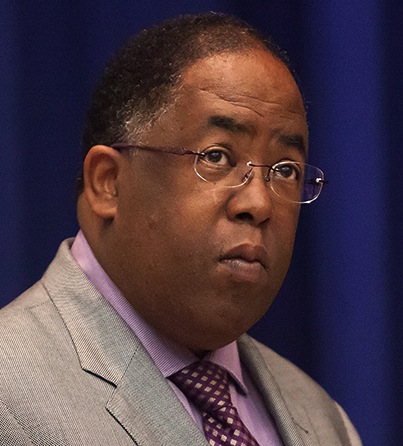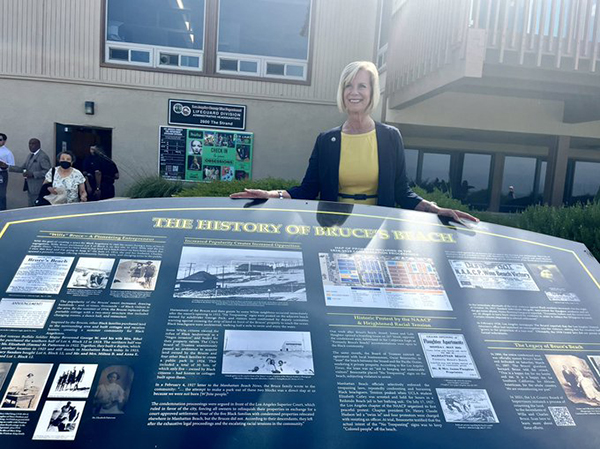By Shirley Hawkins
Contributing Writer
SOUTH LOS ANGELES — As a teacher at Jefferson High School, B.J. Williams noticed that many students on campus were struggling with mental health issues during the COVID-19 pandemic.
“I noticed that the students were feeling a lot of mixed emotions during the pandemic,” he said. “A lot of them were afraid.”
The educator said that he had been thinking for years about the need for mental health services and how to bring them to the community.
“Many Black and brown residents don’t know where to turn for help,” he said. “In communities of color, access to mental health resources may be out of reach.
“I had this idea about bringing therapy services to the community and I talked to some friends. The seed was planted around 2018, then in 2019 I started researching mental health therapy and then developed a plan. In 2020, I started doing the work.”
To spread the word about mental health, Williams purchased a bus at a U.S. Government auction. One the side of the bus he painted the words Can I Be Vulnerable.
“I take the bus out into the community, sort of like the ice cream man,” he said. “We do preventative care. We have social workers, two psychologists, a psychiatrist and an occupational therapist who counsel people on the bus. I help young people figure out the questions to ask a therapist.”
Williams said he pays about 90% of the costs for operating the bus out of his own pocket.
Recently, he parked the bus outside Jefferson High School where he and mental health facilitators talked to students. He said that mental health counseling should also be available for educators and school staff as well as the students, “because adults need to be there for the kids.”
“There’s a stigma attached to therapy,” Williams said, “especially in Black and brown communities and especially among men. Historically, the health care system has not been kind to Black and brown communities.”
Williams said many Blacks and other minorities think that seeing a therapist is for white people.
“The Black community could not afford to talk about our mental and emotional well being,” he said. “When we have problems, we routinely turn to the church, to God or to the community.
“When we have mental issues, it is like, either you’re crazy, on pills or you should just let the problem fade away. The minority community tends to write [mental health issues] off.
“We in the Black community have always needed mental health therapy,” he added. “We need it not just now but we’ve needed it generations past just because of what the Black community has historically gone through.”
Williams has a degree in social science from Washington State University, where he also studied child psychology.
Later this month he plans to pack up his bus and head to Las Vegas for a men’s wellness conference.
He has a personal reason for his interest in mental health therapy. His oldest brother committed suicide eight years ago.
“There had always been signs,” he said, looking back. “He would go through mood swings and [obsessive compulsive disorder]. I did not have training in mental health therapy at the time to help him but he would say different things like, ‘I’m not going to be here.’
Williams entered therapy himself to cope with the loss.
He said that some people think therapy is expensive and shy away from seeking out a therapist, “but there are organizations and colleges that offer free services on a sliding fee,” he said.
He still has concerns about the current mental climate in the country.
“Just dealing with COVID is a mental toll in itself,” he said. “And we are still dealing with racism, police brutality and mass shootings. You can’t go to the store because someone could be out seeking to kill us. Asians have Asian hate going on.
“And our leaders are failing us. They don’t seem to be leaders for the people that they serve,” he added.












